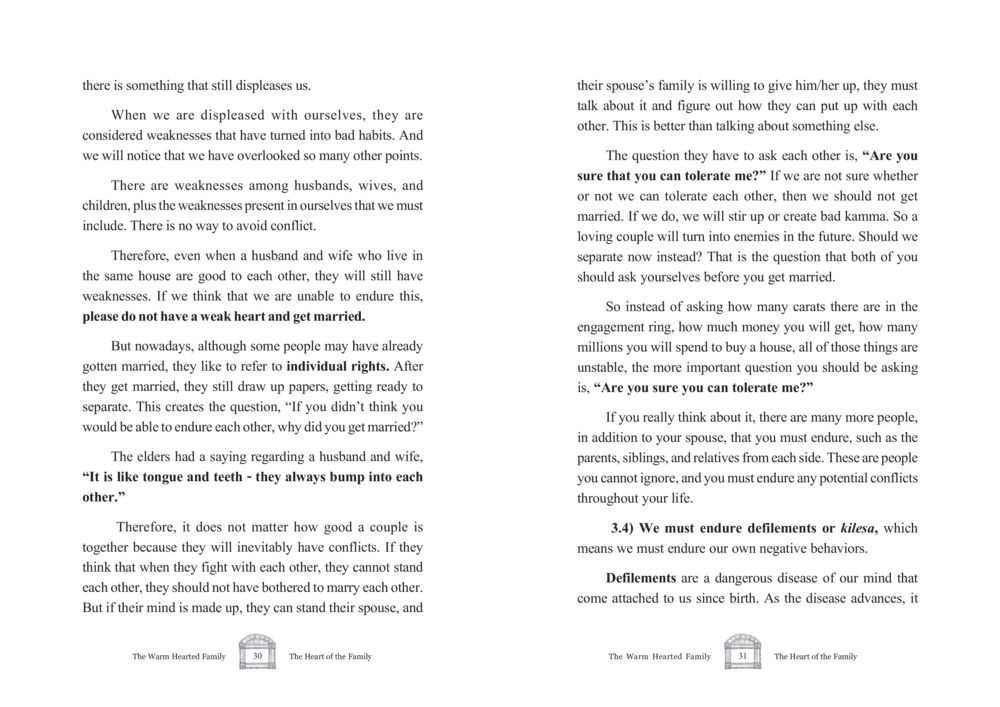Understanding Marital Conflicts and Tolerance : หน้า 16/207
The Warm Hearted Family : หน้า 16/207 Exploring the importance of tolerance in marriage, acknowledging weaknesses, and addressing conflicts within couples and families.
0 ครั้ง

สรุปเนื้อหา
This text discusses the inevitability of conflicts in marriages, highlighting the need for couples to acknowledge their weaknesses and the importance of enduring each other's shortcomings. It poses the critical question of mutual tolerance, urging couples to assess their readiness to endure not just each other but their families as well. The narrative emphasizes that preparation for marriage should focus on enduring challenges rather than material aspects like engagement rings or financial investments. Understanding that disagreements are normal and that partners should communicate effectively before entering into marriage can prevent future strife and the potential of turning loving relationships into conflicts. Couples are encouraged to ask themselves if they can truly tolerate each other before making a lifelong commitment. Separating these thoughts from material considerations creates a stronger foundation for lasting relationships.
หัวข้อประเด็น
-Marital Conflicts
-The Importance of Tolerance
-Acknowledging Weaknesses
-Effective Communication in Relationships
-The Role of Family in Marriage
ข้อความต้นฉบับในหน้า
หน้าหนังสือทั้งหมด















































































































































































































